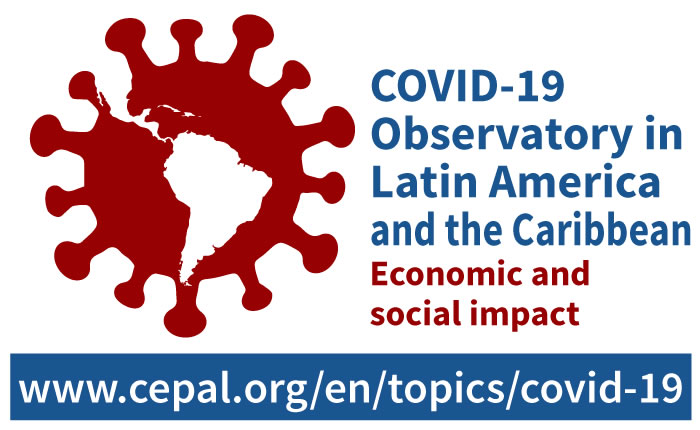ECLAC’s COVID-19 Observatory: An Instrument Supporting Latin America and the Caribbean in Times of Pandemic
Work area(s)
In May 2020, this web tool created to support the region’s countries was among the 10 most viewed pages on ECLAC’s website, with more than 40,000 visits.

In the new global scenario in times of pandemic prompted by COVID-19, it is essential to take urgent measures and evaluate the impact of those actions. For this reason, and in response to a request made by the Community of Latin American and Caribbean States (CELAC), the COVID-19 Observatory came into being with the aim of supporting the region’s countries on follow-up and monitoring of the effects of the crisis caused by the coronavirus in the medium and long term.
ECLAC – as part of a joint effort with the rest of the United Nations agencies, funds and programs and the support of the global organization’s resident coordinators in the region – put this instrument into place to present updated information about the measures and actions that the 33 countries of the Latin American and Caribbean region are taking to limit the pandemic’s impact, while also analyzing the economic and social effects they will have on a national and sectoral level.
An interactive map allows visitors to clearly see what actions each country is taking with regard to restrictions on movement, health, economics, employment, social protection and education. To date, the website has already been visited by more than 40,000 people.
In addition, on the Observatory site, reports and other documents addressing the impact of COVID-19 in economic, social and sectoral arenas have been published. Between April and May 2020, three main reports were published on economic and social effects, the eventual economic reactivation and the social consequences of this crisis – all of which included figures showing the dramatic and alarming reality that this pandemic will engender in the short and medium term. The most frequently downloaded publication so far has been the first one, Latin America and the Caribbean and the COVID-19 pandemic: Economic and social effects, downloaded more than 25,000 times since its publication on April 3.
In the framework of the Observatory and the COVID-19 crisis, ECLAC also published joint reports with the FAO and ILO, on issues such as the food crisis, work-related challenges and child labor.
Separately, the UN Regional Commission has also been producing a series of short publications with recommendations for this difficult scenario on matters as varied as the 2030 Agenda for Sustainable Development; household surveys; the consumer price index and statistics on national accounts, the balance of payments and foreign trade; along with many others. All of these can be read and downloaded from the Observatory’s site.
Type
Country(ies)
- Latin America and the Caribbean
Contact
Public Information Unit
- prensa@cepal.org
- (56 2) 2210 2040